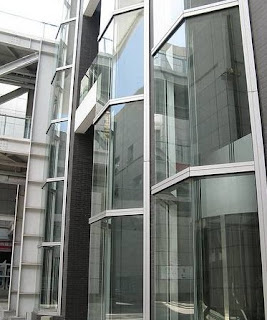If you are looking for somebody to do a Plastering job for you, just
browse through the net and you will find plenty of offers. Whether you want to
plaster a ceiling, make a new ceiling or a plaster board ceiling, you can
choose the job offer that meets your needs. And sometimes if the exact job that
you are looking for is not available, just ask for a quote on one of the
websites, and they will get back to you with the details.
It is often difficult to judge the plastering job that is required for
your wall or ceiling. Sometimes one wastes a lot of time looking through
websites and directories and searching for the suitable person and the lowest
price. It is better to submit a brief job specification on any of the websites
and wait till they contact you with the quote.
For this you need to measure the area that you need to plaster. Specify
also whether it is a wall or a ceiling. And the location of the room is also
important. Whether it is for your home or office, mention whether it is the
bathroom, garden, kitchen, extension, loft or driveway.
For a new plaster board ceiling you can get plaster to fit a new 12.5 mm
plaster board over your existing ceiling. The finishing plaster will then be
fitted with a 3 mm skim to plaster the ceiling. The price that is quoted is for
the complete plastering job, which includes the plaster board to cover your
ceiling, the plaster as well as the labor.
The same applies to a plastering job which involves a new plaster board
ceiling. Normally for such jobs you have to pay 20% in advance and the rest to
the fitter after he completes the plastering job for you. Plastering
jobs are not difficult for a plasterer to find, because it requires special
skills and plastering jobs are required all the time. Sometimes the repairs are
general and the plasterers are paid by the hour.
Plastering jobs involve mixing and applying different kinds of plaster
in order to provide a finish to internal surfaces. These surfaces could be
walls, floors or ceilings. For external walls plastering is done with a mixture
of sand and cement, pebble-dash or stone-effect materials.
The range of work for plastering jobs could be for new-build housing or
commercial developments, small scale domestic extensions or for restoration and
repair of existing buildings. Let us look at the two basic types of plastering
jobs: solid plastering and fibrous plastering.
During solid plastering wet finishes are applied to walls, ceilings and
floors. Sometimes protective coverings are put, such as pebble-dashing on
external walls. A range of hand tools and spraying equipment are used for this
kind of plastering.
Fibrous plastering is more ornamental like making ceiling roses,
cornices, ornamental columns and architraves. A mixture of plaster and short
fibers is made for this kind of plastering. An architect, an artist or an
interior designer makes the drawings and these are followed using tools like
moulds and casts. Fibrous makers and fibrous fixers are employed by some firms.
Drylining is a term now often associated with plastering jobs. This term
describes the construction of internal partitions using plasterboard or
wallboard. A timber or metal frame which is ready for decorating is made, and
on it wall and floor partitions are constructed by fastening boards together.
When the project is very large, plasterers can then work on the job in teams in
different sections of the wall at the same time.


























